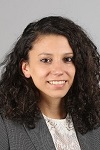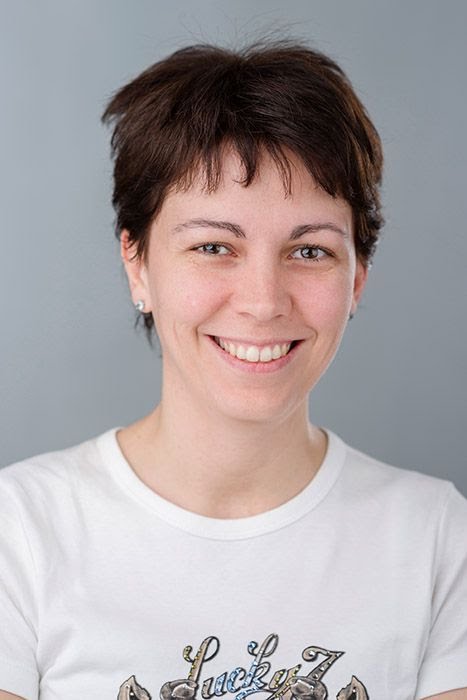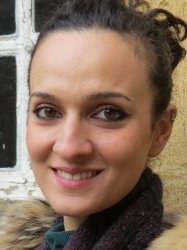Studying at the University of Verona
Here you can find information on the organisational aspects of the Programme, lecture timetables, learning activities and useful contact details for your time at the University, from enrolment to graduation.
Academic calendar
The academic calendar shows the deadlines and scheduled events that are relevant to students, teaching and technical-administrative staff of the University. Public holidays and University closures are also indicated. The academic year normally begins on 1 October each year and ends on 30 September of the following year.
Course calendar
The Academic Calendar sets out the degree programme lecture and exam timetables, as well as the relevant university closure dates..
| Period | From | To |
|---|---|---|
| primo semestre magistrali | Sep 30, 2019 | Dec 20, 2019 |
| secondo semestre magistrali | Feb 24, 2020 | May 29, 2020 |
| Session | From | To |
|---|---|---|
| Sessione invernale magistrali | Jan 7, 2020 | Feb 21, 2020 |
| Sessione estiva magistrali | Jun 3, 2020 | Jul 10, 2020 |
| Autumn Session exams | Aug 24, 2020 | Sep 11, 2020 |
| Session | From | To |
|---|---|---|
| Autumn Session | Dec 2, 2019 | Dec 4, 2019 |
| Winter Session | Apr 7, 2020 | Apr 9, 2020 |
| Summer session | Sep 7, 2020 | Sep 9, 2020 |
Exam calendar
Exam dates and rounds are managed by the relevant Economics Teaching and Student Services Unit.
To view all the exam sessions available, please use the Exam dashboard on ESSE3.
If you forgot your login details or have problems logging in, please contact the relevant IT HelpDesk, or check the login details recovery web page.
Academic staff
 marcella.veronesi@univr.it
marcella.veronesi@univr.it
Study Plan
The Study Plan includes all modules, teaching and learning activities that each student will need to undertake during their time at the University.
Please select your Study Plan based on your enrollment year.
1° Year
| Modules | Credits | TAF | SSD |
|---|
2° Year activated in the A.Y. 2020/2021
| Modules | Credits | TAF | SSD |
|---|
2 courses to be chosen among the following2 courses to be chosen among the following| Modules | Credits | TAF | SSD |
|---|
| Modules | Credits | TAF | SSD |
|---|
2 courses to be chosen among the following2 courses to be chosen among the following| Modules | Credits | TAF | SSD |
|---|
Legend | Type of training activity (TTA)
TAF (Type of Educational Activity) All courses and activities are classified into different types of educational activities, indicated by a letter.
Type D and Type F activities
Nei piani didattici di ciascun Corso di studio è previsto l’obbligo di conseguire un certo numero di crediti formativi mediante attività a scelta (chiamate anche "di tipologia D e F").
Oltre che in insegnamenti previsti nei piani didattici di altri corsi di studio e in certificazioni linguistiche o informatiche secondo quanto specificato nei regolamenti di ciascun corso, tali attività possono consistere anche in iniziative extracurriculari di contenuto vario, quali ad esempio la partecipazione a un seminario o a un ciclo di seminari, la frequenza di laboratori didattici, lo svolgimento di project work, stage aggiuntivo, eccetera.
Come per ogni altra attività a scelta, è necessario che anche queste non costituiscano un duplicato di conoscenze e competenze già acquisite dallo studente.
Quelle elencate in questa pagina sono le iniziative extracurriculari che sono state approvate dal Consiglio della Scuola di Economia e Management e quindi consentono a chi vi partecipa l'acquisizione dei CFU specificati, alle condizioni riportate nelle pagine di dettaglio di ciascuna iniziativa.
Si ricorda in proposito che:
- tutte queste iniziative richiedono, per l'acquisizione dei relativi CFU, il superamento di una prova di verifica delle competenze acquisite, secondo le indicazioni contenute nella sezione "Modalità d'esame" della singola attività;
- lo studente è tenuto a inserire nel proprio piano degli studi l'attività prescelta e a iscriversi all'appello appositamente creato per la verbalizzazione, la cui data viene stabilita dal docente di riferimento e pubblicata nella sezione "Modalità d'esame" della singola attività.
ATTENZIONE: Per essere ammessi a sostenere una qualsiasi attività didattica, inlcuse quelle a scelta, è necessario essere iscritti all'anno di corso in cui essa viene offerta. Si raccomanda, pertanto, ai laureandi delle sessioni di dicembre e aprile di NON svolgere attività extracurriculari del nuovo anno accademico, cui loro non risultano iscritti, essendo tali sessioni di laurea con validità riferita all'anno accademico precedente. Quindi, per attività svolte in un anno accademico cui non si è iscritti, non si potrà dar luogo a riconoscimento di CFU.
Documents and news
-
 Descrizione del percorso di formazione - Regolamento didattico
(pdf, it, 479 KB, 22/04/21)
Descrizione del percorso di formazione - Regolamento didattico
(pdf, it, 479 KB, 22/04/21)
| years | Modules | TAF | Teacher |
|---|---|---|---|
| 1° 2° | Enactus Verona 2020 | D |
Paola Signori
(Coordinator)
|
| 1° 2° | Parlare in pubblico e economic writing | D |
Martina Menon
(Coordinator)
|
| 1° 2° | Samsung Innovation Camp | D |
Marco Minozzo
(Coordinator)
|
| 1° 2° | Simulation and Implementation of Economic Policies | D |
Federico Perali
(Coordinator)
|
| years | Modules | TAF | Teacher |
|---|---|---|---|
| 1° 2° | Predictive analytics for business decisions - 2019/20 | D |
Claudio Zoli
(Coordinator)
|
| 1° 2° | Professional communication for economics - 2019/20 | D |
Claudio Zoli
(Coordinator)
|
| 1° 2° | Parlare in pubblico e economic writing | D |
Martina Menon
(Coordinator)
|
| 1° 2° | Regulation, procurement and competition - 2019/20 | D |
Claudio Zoli
(Coordinator)
|
| 1° 2° | Simulation and Implementation of Economic Policies | D |
Federico Perali
(Coordinator)
|
Econometrics (2019/2020)
Teaching code
4S02464
Teacher
Coordinator
Credits
9
Language
English
Scientific Disciplinary Sector (SSD)
SECS-P/05 - ECONOMETRICS
Period
primo semestre magistrali dal Sep 30, 2019 al Dec 20, 2019.
Learning outcomes
The course provides an overview of the main econometric tools, with particular emphasis on economic applications, developed interactively in the computer laboratory using the professional software Stata™. The program covers standard econometric models (OLS regression and its diagnostics) as well as more advanced models for the analysis of cross-sectional, time series and panel data (IV, probit, tobit, random and fixed effects). Particular attention will be given to the intuition behind each topic, in addition to more formal issues. Towards the end of the course a voluntary assignment will be proposed, with the aim of translating research questions into empirical analyses, applying on real data the tools learnt in class, and stimulating discussion among students. At the end of the course, students should be able to: i) read and critically interpret empirical works developed by other researchers, ii) manage small and large datasets in order to extract useful information, and iii) design and implement on their own empirical analyses based on real data.
Program
1) Introduction
1.1) What is Econometrics?
Definition; cross-section, time series and panel data.
1.2) Stata tutorial
Data management; basic statistics; graphics.
2) Ordinary Least Squares (OLS) Estimator
2.1) Introduction
Univariate and multivariate regression; marginal effects and elasticity; R-squared and adjusted R-squared; outliers.
2.2) Properties
Gauss-Markov assumptions; unbiasedness; efficiency; consistency; asymptotic normality.
2.3) Testing
t-test on one restriction; F test on several restrictions.
3) OLS Diagnostics
3.1) Specification
Collinearity; superfluous and omitted variables; RESET test of specification; Chow test of structural stability.
3.2) Heteroskedasticity
White test and Breusch-Pagan test; White robust standard errors.
4) Instrumental Variable (IV) Estimator
4.1) Estimator
Assumptions; Simple instrumental variable (SIV) and generalized instrumental variable (GIV); properties; two-stage derivation (2SLS).
4.2) Instrument selection
Relevance test; weak instruments; Sargan validity test; Hausman exogeneity test.
5) Limited Dependent Variable (LDV)
5.1) Binary dependent variable
Linear probability model (LPM); probit and logit models; marginal effects; maximum likelihood estimate; goodness of fit; hypothesis testing.
5.2) Truncated and censored data
Truncated regression; tobit-I model; tobit-II and heckman model; marginal effects; goodness of fit.
6) Different Types of Data
6.1) Time series
AR, MA and ARMA processes; Durbin-Watson test and Breusch-Godfrey test; Newey-West robust standard errors; unit root; cointegration.
6.2) Panel data
Pooled effects, fixed effects and random effects; goodness of fit; comparison tests.
Lecture method: frontal teaching
| Author | Title | Publishing house | Year | ISBN | Notes |
|---|---|---|---|---|---|
| Marno Verbeek | A Guide to Modern Econometrics (Edizione 4) | John Wiley and Sons | 2012 | 978-1-119-95167-4 |
Examination Methods
The exam is written; no oral integration is possible.
The final grade is based on one mandatory final exam and one voluntary homework. The final exam includes theoretical, numerical and applied exercises on the topics covered in class; the homework (assigned during the semester) includes applied exercises only. The applied exercise requires the use of the software Stata. During the final exam the use of handheld calculators is allowed, but not the one of textbooks or teaching notes.
The homework adds 1 bonus point to the final grade and accounts for 10% of the final grade. The homework grade and bonus expires after the winter session of exams.
During the summer session the exam is held remotely and takes the form of an oral examination of 20-30 minutes. During the examination, students will be asked to answer exam-style exercises. Nothing about Stata will be asked.
Career prospects
Module/Programme news
News for students
There you will find information, resources and services useful during your time at the University (Student’s exam record, your study plan on ESSE3, Distance Learning courses, university email account, office forms, administrative procedures, etc.). You can log into MyUnivr with your GIA login details: only in this way will you be able to receive notification of all the notices from your teachers and your secretariat via email and also via the Univr app.
Linguistic training CLA
Gestione carriere
Student login and resources
Graduation
List of thesis proposals
| theses proposals | Research area |
|---|---|
| La (cattiva) gestione dei fondi comunitari in Italia | ECONOMICS - ECONOMICS |
| PMI (SMES) and financial performance | MANAGEMENT OF ENTERPRISES - MANAGEMENT OF ENTERPRISES |
| Analisi dell'Impatto della Regolamentazione: potenziale e applicazioni concrete | Various topics |
| Costs and benefits of the new Turin-Lyon railway line | Various topics |
| Costs and benefits of new systems for speed control on italian motorways | Various topics |
| Contingent valuation for the quality of hospital characteristics | Various topics |
| Evaluating occupational impacts of large investment projects | Various topics |
Internships
Admission policy
ADMISSION POLICY
The admission procedure for international students is explained in details at:
www.magecverona.it/admission-benefits/
For further information please contact magec@dse.univr.it
Additional information
Additional information
For further information visit the program website, http://magec.dse.univr.it, or send an email at magec@dse.univr.it.

 0458028734
0458028734























